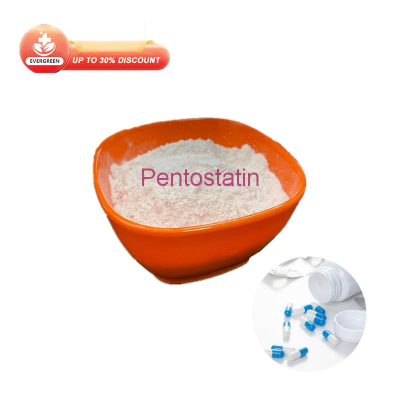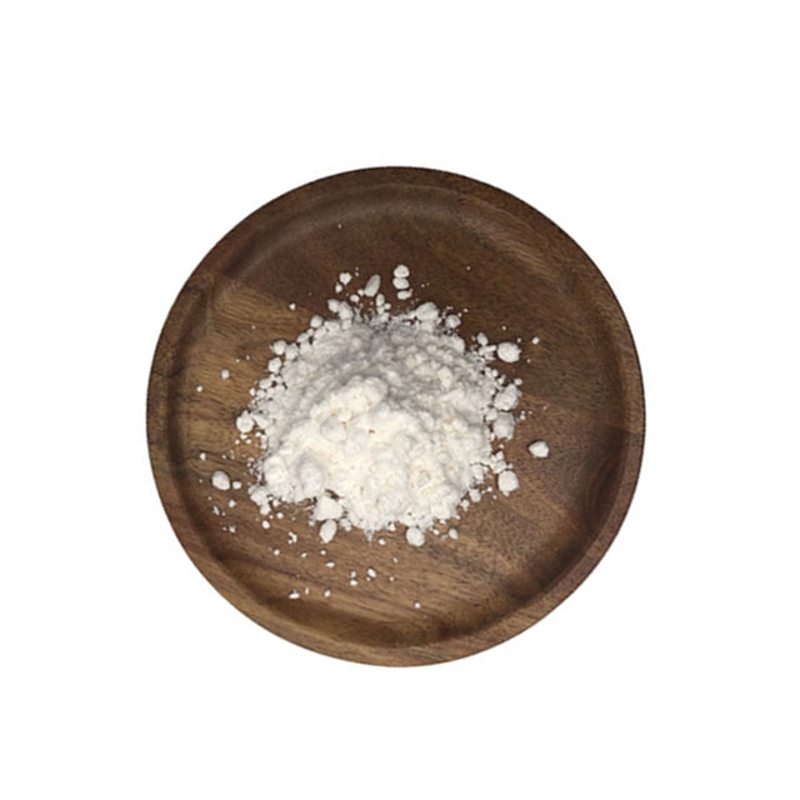-
Categories
-
Pharmaceutical Intermediates
-
Active Pharmaceutical Ingredients
-
Food Additives
- Industrial Coatings
- Agrochemicals
- Dyes and Pigments
- Surfactant
- Flavors and Fragrances
- Chemical Reagents
- Catalyst and Auxiliary
- Natural Products
- Inorganic Chemistry
-
Organic Chemistry
-
Biochemical Engineering
- Analytical Chemistry
- Cosmetic Ingredient
-
Pharmaceutical Intermediates
Promotion
ECHEMI Mall
Wholesale
Weekly Price
Exhibition
News
-
Trade Service
Explore Xintiandi---MDT Selection Explore Xintiandi is sponsored by the Beijing Medical Award Foundation, guided by the Chinese Anti-Cancer Association Urology and Andrology Reproductive Tumor Committee, and fully supported by Yimaitong
.
It aims to promote the communication and interaction of doctors in the field of urinary oncology-MDT resource sharing, academic cutting-edge broadcasts, and improvement of clinical diagnosis and treatment
.
Click to watch the highlights of MDT highlights.
This issue of the MDT team from the Union Hospital of Tongji Medical College of Huazhong University of Science and Technology and the First People's Hospital of Shanghai Jiaotong University will bring you wonderful discussions
.
Special report (1): The formation of the first-line NHT treatment of mCRPC, Professor Jing Yifeng from the First People's Hospital of Shanghai Jiaotong University mainly reported on three aspects: 1 The treatment of metastatic castration-resistant prostate cancer (mCRPC) The formation of the plan is very important; 2 Enzalutamide is a better first-line treatment of new hormone therapy (NHT); 3 In patients with poor prognostic factors, the benefit of enzalutamide treatment is clear
.
Professor Jing said that for the treatment of mCRPC patients, usually less than half of the patients have the opportunity to receive the second and third-line treatment, so the choice of the first-line regimen is very critical
.
According to the results of subgroup analysis of clinical studies, real-world studies, and meta-analysis, the benefits of enzalutamide in the first-line treatment of mCRPC patients are more extensive than that of abiraterone, and the overall survival (OS) benefit is more clear
.
For patients with adverse factors, enzalutamide treatment not only has clear benefits, but also has lower treatment risks
.
Case sharing and discussion (1) Professor Ying Shi from Union Hospital of Tongji Medical College of Huazhong University of Science and Technology shared a case of "prostate cancer treated with MDT".
Multidisciplinary experts made suggestions on the follow-up treatment plan of this case.
The common clinical problems were discussed
.
The patient is 69 years old
.
Main complaint: frequent urination and urgency with elevated PSA for more than half a year
.
Auxiliary examination: ◆B-ultrasound: prostate enlargement with multiple stones or calcification ◆MRI: prostate hyperplasia with prostate cancer, with right seminal vesicle gland invasion : Prostate cancer with bone metastasis
.
Treatment experience: 1.
In 2018, the patient participated in a clinical trial for the treatment of advanced prostate cancer with high tumor burden.
The test group was SHR3680 combined with androgen deprivation therapy (ADT), and the control group was bicalutamide combined with ADT.
The patient was assigned to the control group
.
2.
In April 2021, the patient participated in another clinical trial: the test group was domestic abiraterone acetate, and the control group was treated with Zeke + prednisone, and the patient was assigned to the control group
.
How should the patient choose a treatment plan in the future? Should radiotherapy and chemotherapy be performed? Professor Fan Jiquan said that when the patient has the conditions, puncture should be the first choice, if puncture is difficult, chemotherapy should be the first choice
.
If the patient refuses chemotherapy, PSMA PET-CT can be performed to observe the most active part of the tumor, and then receive radiotherapy to achieve the purpose of prolonging the survival of the patient
.
Case sharing and discussion (2) Professor Wang Xiaohai from the First People’s Hospital of Shanghai Jiaotong University shared with us a case of "postoperative prostate cancer with metastasis and recurrence".
For similar high-risk advanced prostate cancer patients, experts from the two hospitals targeted Their clinical treatment plan puts forward their own views
.
The patient was male, 66 years old
.
Main complaint: Physical examination revealed elevated PSA
.
Needle biopsy showed: prostate cancer, Gleason score 4+4=8 points
.
Diagnosis: locally advanced prostate cancer (high risk)
.
Treatment experience: 1.
In 2010, he underwent laparoscopic radical resection of prostate cancer
.
2.
Postoperative ADT was performed in July 2010, and bicalutamide was used in October due to liver damage
.
3.
In March 2015, the patient's PSA was elevated, and he was considered to be diagnosed with biochemical recurrence (BCR) after radical prostatectomy and received radiotherapy
.
4.
In May 2017, the patient developed hematuria, and the ECT examination indicated the possibility of bone metastasis.
Consider the diagnosis of mCRPC and receive chemotherapy + conventional endocrine therapy
.
5.
In September 2018, the patient was reassessed in the outpatient clinic and switched to oral treatment with abiraterone + prednisone
.
6.
In October 2020, the patient's PSA increased again, and in April 2021, he switched to oral enzalutamide treatment
.
For patients with high-risk advanced prostate cancer similar to this case, how should clinical follow-up treatment options be selected? Professor Chungang Wang said that adjuvant radiotherapy is generally performed within 4 months after surgery, while salvage radiotherapy is generally used when patients have biochemical recurrence or new few lesions after surgery
.
Combined with this case, the patient has developed BCR and entered the mCRPC stage.
Professor Wang believes that the patient is more inclined to palliative radiotherapy
.
Professor Han Bangmin said that the current new endocrine therapies, including enzalutamide, abiraterone, apatamide, etc.
, have good therapeutic effects.
Therefore, in general, the treatment of prostate cancer has made good progress.
It brings new treatment options to high-risk advanced prostate cancer patients
.
In the special report, what are the specific benefits of enzalutamide in the first-line treatment of mCRPC patients? In the case discussion, for patients with high-risk advanced prostate cancer, how should follow-up treatment options be selected after surgery? Click "Read the original text" below to watch the wonderful special report and MDT discussion
.
Click "Read the original text" below to watch the full wonderful special report and MDT discussion
.
It aims to promote the communication and interaction of doctors in the field of urinary oncology-MDT resource sharing, academic cutting-edge broadcasts, and improvement of clinical diagnosis and treatment
.
Click to watch the highlights of MDT highlights.
This issue of the MDT team from the Union Hospital of Tongji Medical College of Huazhong University of Science and Technology and the First People's Hospital of Shanghai Jiaotong University will bring you wonderful discussions
.
Special report (1): The formation of the first-line NHT treatment of mCRPC, Professor Jing Yifeng from the First People's Hospital of Shanghai Jiaotong University mainly reported on three aspects: 1 The treatment of metastatic castration-resistant prostate cancer (mCRPC) The formation of the plan is very important; 2 Enzalutamide is a better first-line treatment of new hormone therapy (NHT); 3 In patients with poor prognostic factors, the benefit of enzalutamide treatment is clear
.
Professor Jing said that for the treatment of mCRPC patients, usually less than half of the patients have the opportunity to receive the second and third-line treatment, so the choice of the first-line regimen is very critical
.
According to the results of subgroup analysis of clinical studies, real-world studies, and meta-analysis, the benefits of enzalutamide in the first-line treatment of mCRPC patients are more extensive than that of abiraterone, and the overall survival (OS) benefit is more clear
.
For patients with adverse factors, enzalutamide treatment not only has clear benefits, but also has lower treatment risks
.
Case sharing and discussion (1) Professor Ying Shi from Union Hospital of Tongji Medical College of Huazhong University of Science and Technology shared a case of "prostate cancer treated with MDT".
Multidisciplinary experts made suggestions on the follow-up treatment plan of this case.
The common clinical problems were discussed
.
The patient is 69 years old
.
Main complaint: frequent urination and urgency with elevated PSA for more than half a year
.
Auxiliary examination: ◆B-ultrasound: prostate enlargement with multiple stones or calcification ◆MRI: prostate hyperplasia with prostate cancer, with right seminal vesicle gland invasion : Prostate cancer with bone metastasis
.
Treatment experience: 1.
In 2018, the patient participated in a clinical trial for the treatment of advanced prostate cancer with high tumor burden.
The test group was SHR3680 combined with androgen deprivation therapy (ADT), and the control group was bicalutamide combined with ADT.
The patient was assigned to the control group
.
2.
In April 2021, the patient participated in another clinical trial: the test group was domestic abiraterone acetate, and the control group was treated with Zeke + prednisone, and the patient was assigned to the control group
.
How should the patient choose a treatment plan in the future? Should radiotherapy and chemotherapy be performed? Professor Fan Jiquan said that when the patient has the conditions, puncture should be the first choice, if puncture is difficult, chemotherapy should be the first choice
.
If the patient refuses chemotherapy, PSMA PET-CT can be performed to observe the most active part of the tumor, and then receive radiotherapy to achieve the purpose of prolonging the survival of the patient
.
Case sharing and discussion (2) Professor Wang Xiaohai from the First People’s Hospital of Shanghai Jiaotong University shared with us a case of "postoperative prostate cancer with metastasis and recurrence".
For similar high-risk advanced prostate cancer patients, experts from the two hospitals targeted Their clinical treatment plan puts forward their own views
.
The patient was male, 66 years old
.
Main complaint: Physical examination revealed elevated PSA
.
Needle biopsy showed: prostate cancer, Gleason score 4+4=8 points
.
Diagnosis: locally advanced prostate cancer (high risk)
.
Treatment experience: 1.
In 2010, he underwent laparoscopic radical resection of prostate cancer
.
2.
Postoperative ADT was performed in July 2010, and bicalutamide was used in October due to liver damage
.
3.
In March 2015, the patient's PSA was elevated, and he was considered to be diagnosed with biochemical recurrence (BCR) after radical prostatectomy and received radiotherapy
.
4.
In May 2017, the patient developed hematuria, and the ECT examination indicated the possibility of bone metastasis.
Consider the diagnosis of mCRPC and receive chemotherapy + conventional endocrine therapy
.
5.
In September 2018, the patient was reassessed in the outpatient clinic and switched to oral treatment with abiraterone + prednisone
.
6.
In October 2020, the patient's PSA increased again, and in April 2021, he switched to oral enzalutamide treatment
.
For patients with high-risk advanced prostate cancer similar to this case, how should clinical follow-up treatment options be selected? Professor Chungang Wang said that adjuvant radiotherapy is generally performed within 4 months after surgery, while salvage radiotherapy is generally used when patients have biochemical recurrence or new few lesions after surgery
.
Combined with this case, the patient has developed BCR and entered the mCRPC stage.
Professor Wang believes that the patient is more inclined to palliative radiotherapy
.
Professor Han Bangmin said that the current new endocrine therapies, including enzalutamide, abiraterone, apatamide, etc.
, have good therapeutic effects.
Therefore, in general, the treatment of prostate cancer has made good progress.
It brings new treatment options to high-risk advanced prostate cancer patients
.
In the special report, what are the specific benefits of enzalutamide in the first-line treatment of mCRPC patients? In the case discussion, for patients with high-risk advanced prostate cancer, how should follow-up treatment options be selected after surgery? Click "Read the original text" below to watch the wonderful special report and MDT discussion
.
Click "Read the original text" below to watch the full wonderful special report and MDT discussion







